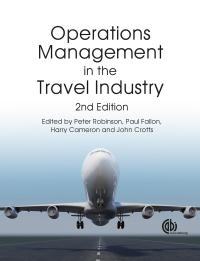1. What alternative structures would work better? It may be useful to research the management of railways...
Question:
1. What alternative structures would work better? It may be useful to research the management of railways in other countries, or to reflect on the history of British Rail and its privatized predecessors to try to understand some of the challenges and advantages that were presented by the management structures of the past. The purpose of rail travel is twofold: the movement of people and the movement of goods.
In the UK, rail infrastructure, which includes track, bridges, level crossings, tunnels, electric cabling, signals and 2500 stations, are all owned by Network Rail, whose mission is to ‘create a railway for the 21st century’. This places with them responsibility for the maintenance and development of railway infrastructure, delivered through major engineering contractors. Risk management and health and safety are crucial aspects of the business. As a result, most engineering works require track closures or slow running, which creates obvious issues for train operating companies trying to deliver a timetabled service but unable to influence works that may be causing delays. However, the West Coast track and signalling upgrade has enabled faster running trains, especially Virgin’s tilting Pendolino units on this main line.
The majority of train operating companies (TOCs) on the network deliver services because they have won franchises from the government. These are generally large travelrelated international businesses such as Virgin, National Express, First Group and the Abellio group, which now runs the ScotRail franchise. A small number of operators work on an ‘open access’ model that allows access to the rail network for smaller enterprises usually running a small number of very specific routes. Decisions about this cheaper form of access to the network are, like Network Rail itself, managed by the Office of Rail Regulation.
A further logistical complication is the fact that most of the rolling stock is not owned directly by the operator but by rolling stock operating companies (ROSCOs), which are owned by UK banks, which lease the equipment to the TOCs. This reduces the financial risk to the business and increases flexibility. Ironically, it makes it much easier to transfer equipment between operators when franchises are won and lost. There are also additional spot-hire companies that provide rail equipment at short notice to train operators. Some of these are also owned by banks
Step by Step Answer:






